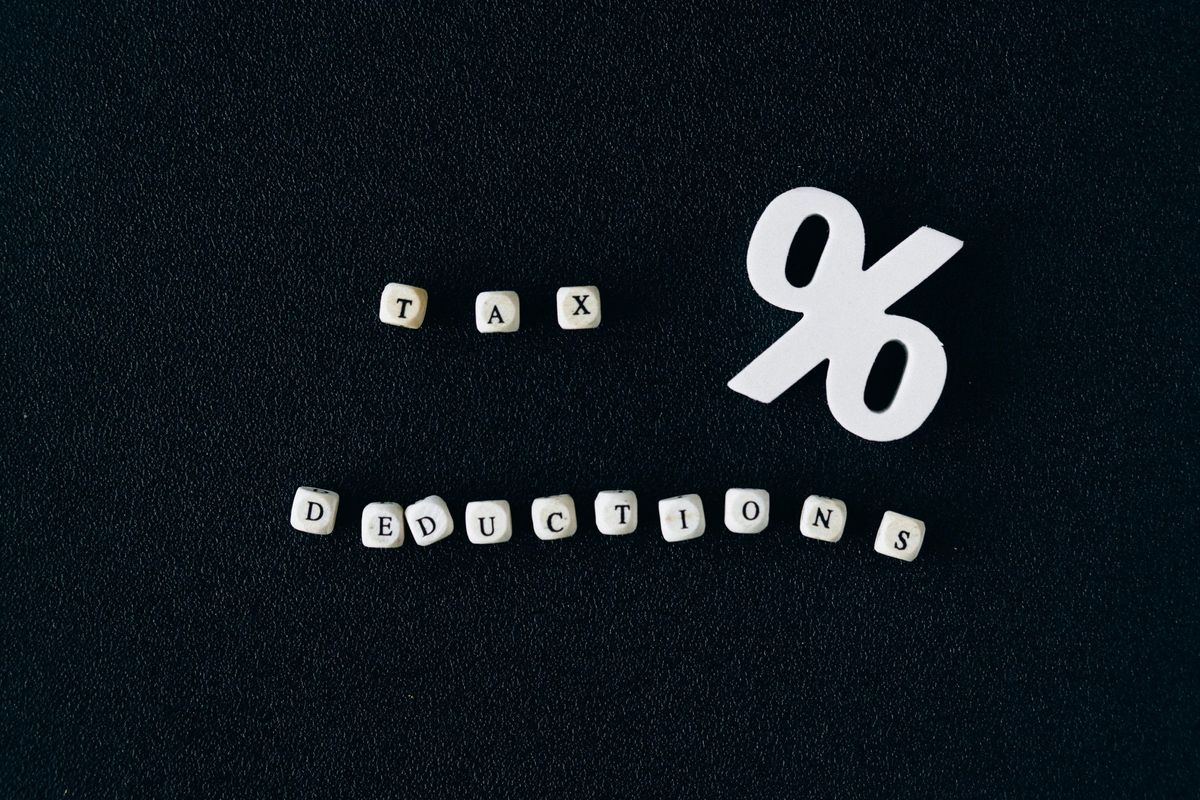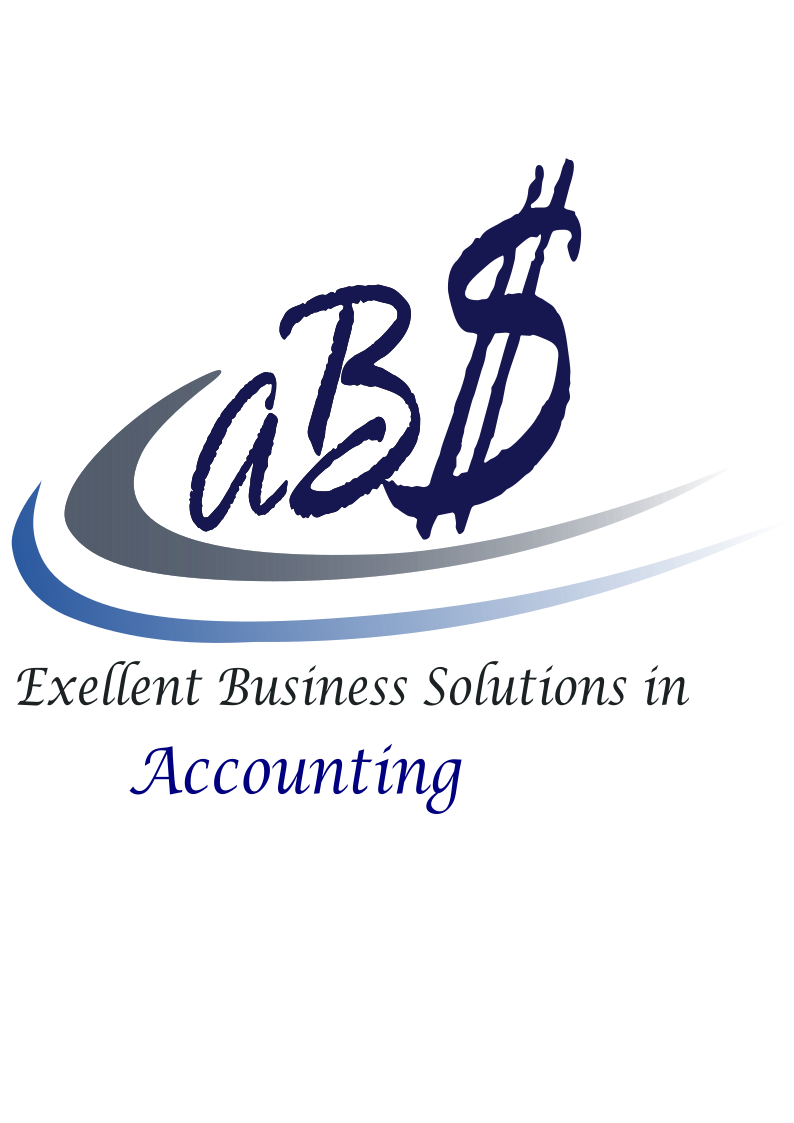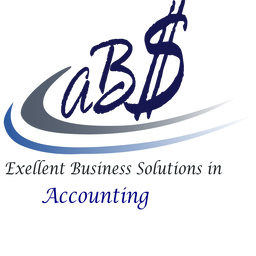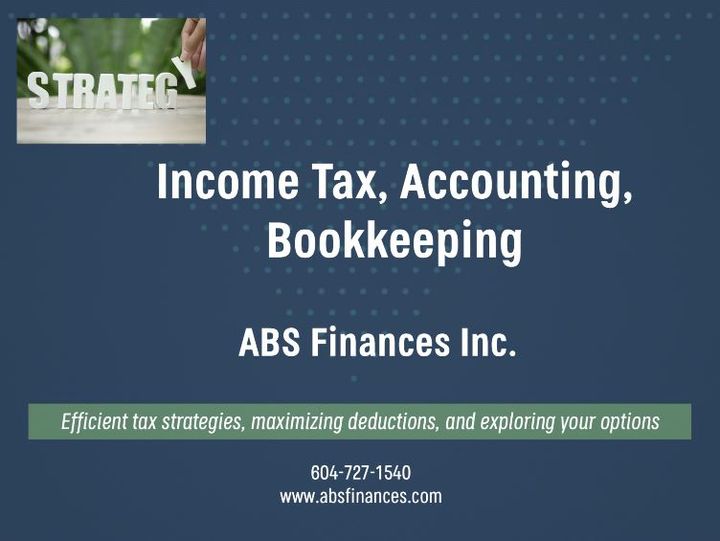Most common deductions and credits
Dive into the essential guide to the most common deductions and credits for 2023, covering everything from RRSP deductions to home buyer's credits, and unlock valuable tax-saving opportunities for the year ahead.

As tax season approaches, it's advantageous to familiarize yourself with the most common deductions and credits to maximize your tax savings.
The following information could prove beneficial regarding the most prevalent deductions and credits.
- RRSP deduction
A Registered Retirement Savings Plan (RRSP) and a Pooled Registered Pension Plan (PRPP) are retirement savings options that allow contributions from you, your spouse, or common-law partner, with deductible contributions reducing your taxable income
- Annual union, professional or like dues
Claim the total of annual union, professional, or similar dues paid during the year related to employment, excluding initiation fees, licences, special assessments, or charges unrelated to the organization's ordinary operating costs, and excluding charges for pension plans.
- Child care expenses
Child care expenses, paid to care for an eligible child while you earn income, attend school, or conduct research under a grant, can be claimed as a deduction on your personal income tax return if eligible.
Allowable expenses you can claim:
- Caregivers providing child care services
- Day nursery schools and daycare centers
- Educational institutions (for child care services portion of fees)
- Day camps (where primary goal is child care)
- Boarding schools or camps with lodging for child care purposes
Disability supports deduction
Under specific conditions, individuals with physical or mental impairments who have incurred certain medical expenses are eligible to claim the disability supports deduction
Allowable expenses you can claim:
- Attendant care expenses
- Bliss symbol boards
- Braille note-taker devices
- Braille printers, synthetic speech systems, large print-on-screen devices
- Deaf-blind intervening services
- Devices or software
- Electronic speech synthesizers
- Job coaching servicesFootnote1
- Note-taking services
- Optical scanners
- Page turner devices
- Reading services
- Real-time captioning
- Sign language interpretation services
- Talking textbooks
- Teletypewriters
- Tutoring services
- Voice recognition software
- Other employment expenses, including:
salaried, commission, transportation employees
forestry operations, employed artists, employed tradespersons
home office expenses for employees
supplies
You may deduct specific expenses, including any GST/HST paid, that were incurred to generate employment income. This applies if your employment agreement mandated these expenses, and you neither received an allowance for them nor if the allowance received is already accounted for in your income
- Other deductions, including:
income amounts repaid
legal fees
other deductible amounts
You can claim the following amounts of your return:
- Canada Pension Plan or Quebec Pension Plan benefits
- scholarships, bursaries or research grants
- retiring allowances
- repayment of a shareholder's loan
- repayments made by you in the year for a policy loan under a life insurance policy
- income from a registered disability savings plan
You can claim legal fees for advice or assistance with CRA reviews, objections, or appeals; for collecting retiring allowances or pension benefits up to the received income; and for efforts to make child support payments non-taxable.
Claim certain unused RRSP, PRPP, or SPP contributions refunded in 2023, excess part of direct transfers from RPPs, PRPPs, or SPPs, designated benefits from various sources if rolled over to an RDSP, and security for a loan if a property in a first home savings account is released
- Other payments deduction, including:
- Workers' compensation benefits
- Social assistance payments
- Net federal supplements paid
- Amount for an eligible dependant
You could qualify for the eligible dependant amount if you supported a qualifying dependant and met specific criteria during the year.
To determine eligibility for claiming the amount for an eligible dependant, ensure the dependant's net income is below your basic personal amount (plus $2,499 for impairment-related dependency), and if you didn't claim line 30300, meet conditions such as not having a spouse, supporting the dependant, living together in a maintained home, and the dependant being a close relative with specified relationships or impairments.
- Home buyers' amount
Claim up to $10,000 for purchasing a qualifying home in 2023, meeting conditions where you or your spouse did not own another home in the year of acquisition or the preceding four years, except for persons with disabilities, and only one spouse or partner needs to meet both conditions.
- Home accessibility expenses
You're eligible to claim expenses for qualifying renovations to an eligible dwelling if you're either a qualifying individual or making a claim for one.
An eligible individual includes a spouse or common-law partner of a qualifying individual, family members of a qualifying individual eligible for certain tax credits, or an individual entitled to claim the disability amount for the qualifying individual.
An eligible dwelling is a Canadian housing unit owned by the qualifying individual or jointly with an eligible individual and is ordinarily inhabited or expected to be inhabited by them in the year.
- Disability amount for self relating to Disability tax credit (DTC)
The Disability Tax Credit (DTC) is a non-refundable tax credit aiding individuals with disabilities, or their supporting family members, in reducing their income tax burden, available upon approval for those with severe and prolonged impairments, aiming to alleviate associated extra costs
- Disability amount transferred from a dependant relating to Disability tax credit (DTC)
If your dependent qualifies for the Disability Tax Credit (DTC) but doesn't require the full disability amount to reduce their income tax, they can transfer it to you, enabling you to claim all or part of it on your tax return.
- Interest paid on your student loans
You may qualify to claim interest paid on your student loan for post-secondary education received under specified acts for up to five years, with only you able to claim this interest, which can be carried forward for future returns.
- Tuition amount transferred from a child or grandchild
Any remaining tuition credit can be transferred by the student to either a parent or grandparent, or to the spouse or common-law partner, as indicated on the tax certificate.
- Donations and gifts
You may claim federal and provincial/territorial non-refundable tax credits for charitable donations made by you, your spouse, or common-law partner, generally up to 75% of your net income.
You can claim a tax credit for your gift to qualified donees, including registered charities, journalism organizations, athletic associations, national arts service organizations, housing corporations for the aged, municipalities, public bodies, the United Nations, universities abroad with Canadian students, and foreign charities receiving gifts from the Government of Canada.
- Canada training credit (CTC)
Complete Schedule 11 to claim the CTC for eligible tuition fees, occupational exam fees, meeting conditions such as residency in Canada, age between 26 and 66 at year-end, and having a CTCL for 2023, with the credit reducing your CTCL for future years.
- Eligible medical expenses, including:
1) medical expenses for self, spouse or common-law partner
2) allowable amount of medical expenses for other dependants
You can claim eligible medical expenses if paid within any 12-month period ending in current reporting year and not claimed previously.
Lern more about medical expenses in my previous articles:




Get in touch with me to discover strategies for optimizing your tax savings.

Disclaimer:
“Please note that the information provided in this article is of a general nature and may not be accurate for your specific situation. The information is current as of the date of posting and is not intended to provide legal advice. It's always recommended that you consult with a professional accountant and lawyer for personalized guidance and advice."




